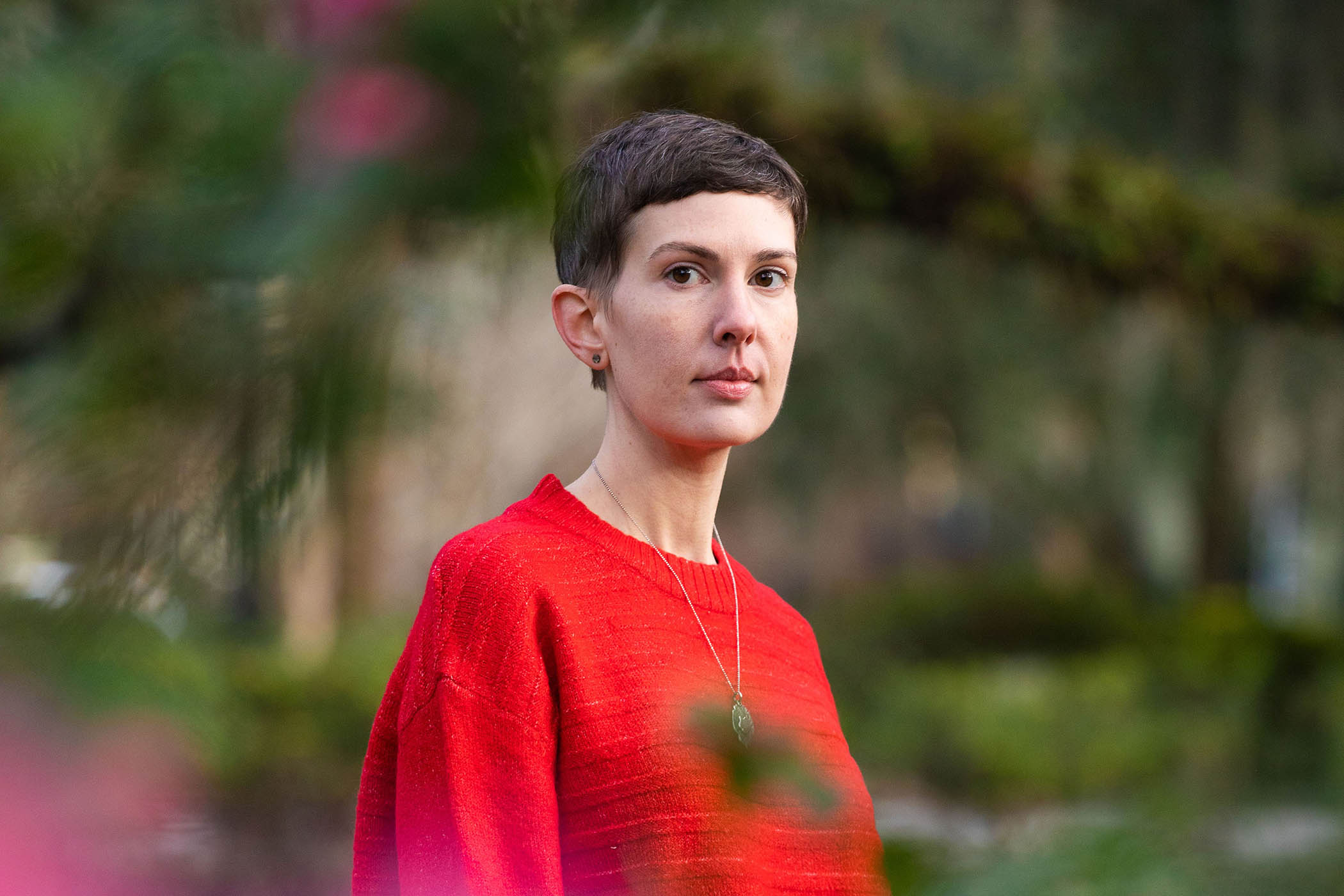“I was determined to do it. I was going to write a masterpiece about being confused.” These words, spoken by the narrator of Patricia Lockwood’s new novel, Will There Ever Be Another You, are as much a threat as a statement of artistic intent. In March 2020, Lockwood caught Covid-19 and became very unwell. She started keeping a “mad notebook” of the experience – fragments that would eventually be shaped into this book: a chronicle of a disorienting, mind-altering illness, a time capsule of the Covid years. And yet – as her narrator notes among the book’s many metafictional flourishes – from the earliest days of the pandemic, people were already begging each other not to write about it. Still, the writing persists. “It was happening in Ohio,” she writes in her secret notebook. “Even in Ohio.” She is conscious that “no one wants to read about any of this”. But she can’t leave it alone. Awful nice public-health emergency you got there, Lockwood seems to say, patting the pen in her holster theatrically. Would be a terrible shame if someone were to, say, capture it in literary prose…
Those familiar with Lockwood’s voice won’t be surprised by this tone of gleeful mischief, of cheerful defiance; her ability to find absurdist humour everywhere. It’s there in her poetry; her comic memoir, Priestdaddy; and her first, very online novel, No One Is Talking About This, which recorded the similarly mentally destabilising experience, amid political crises and personal grief, of being sucked into the black hole of the internet. It’s there in her freakishly stylish essays on writers such as John Updike (“My antagonism toward the Great Male Narcissists… is far milder than might be expected, and mostly takes the form of my wanting to wrestle them at sleepovers, slowly but inexorably, through the use of black magic, turning them into lumberjack lesbians”) or Virginia Woolf (“To the Lighthouse, from the first word of its title, is a novel that moves. Here it comes striding across the lawn, with its hair in long, curving crimps and a deerstalker hat on its head, with a bag in one hand and a child trailing from the other.”)
If some writers avoid entering spaces considered hostile to fiction (the pandemic, the internet, Trump), Patricia Lockwood kicks down the door yelling “OH YEAH!” – the literary equivalent of the Kool-Aid Man. She writes about these things – and grief, and illness, and existential anguish – with a playfulness that would seem brash if it wasn’t so conscious and revealing of the ridiculousness inherent in all such experiences.
The book is divided into three parts, and begins in the third person; “I” no longer applies. Lockwood’s protagonist has had a fever for 48 days and, in desperation, has shaved her head and is taking wormwood every morning, “like a witch from the bible”. She wonders if she is still the same person, or if the illness has stolen her mind and given her a new one. Before she learns of the existence of “alien hand syndrome”, she “tentatively diagnosed herself with a new illness called Who Foot Is That. The main symptom was gasping when you saw your own foot.” Speaking to a medical professional, she wonders: “How to say this – that everything felt like drag to her? All clothes, her eyelashes, the fact that she had hands.” She loses the ability to write, ridicules her own attempts to describe what is happening to her. “I feel that I am being pulled out of the world by the hair – this isn’t the Best American Essays, bitch!” She despairs at discovering a “sickness in [her] synonyms”. She doubles back to cross out thoughts. “No, that wasn’t right. None of that was right… the whole paragraph was invalidated… [she] struck it violently out of the notebook.”
Alongside her own personal confusion is the manic energy of the internet, as news of the pandemic and ensuing lockdowns create panic, conspiracy and hysterical boredom: “We are the plague, people had said at the beginning, rejoicing over pictures of empty streets, of fish and animals shyly returning to natural habitats.” She recalls the tone of censoriousness of those days: how she “actually refused to speak to her [mother] for two months – when she had foolishly confessed to visiting a Cracker Barrel [restaurant] on a road trip”. Many of Lockwood’s references might only make sense to those who spent a good chunk of 2020 scrolling through the mayhem: “People were up at three am, contemplating the purchase of apple-flavoured horse deworming paste, which had just got up to thirty bucks a tube… People had Alice in Wonderland syndrome, and something called Drunk Baby Head, and dark glittering damage to their vegas nerve.”
The narrator “had fallen so far out of the world, out of the human population, that she could not even rejoin them to watch the butthole cut of Cats”. The CEO of Texas Roadhouse killed himself, to free himself from the severe tinnitus he contracted after developing Covid: “In his lengthy obituary, the newspaper printed the quote: ‘We’re a people company that just happens to serve steaks.’ The sentence stayed with her long afterward, shrilling at her temple like a mosquito. We’re a people company that just happens to serve steaks, she would say to herself, surprised by the sight of her own foot.”
She loses the ability to write, ridicules her own attempts to describe what is happening to her
She loses the ability to write, ridicules her own attempts to describe what is happening to her
After the birth of her nephew, the narrator recovers a sense of self – the second part of the book is in the first person, and contains the most metafictional elements, as we follow Lockwood on the promotional tour for her first novel. (This has some of the most fun autobiographical detail: Lockwood is asked to ghostwrite Pamela Anderson’s autobiography, and considers it; at the 2021 Booker prize ceremony, the winner Damon Galgut tells her he is “almost envious” of her for being “one of the very first” to contract Covid; she rambles to Rowan Williams about how it is possible to convey the fullness of human experience through hand signals.) The narrator takes mushrooms and starts another diary, which “slid off the rails with no warning into a weird close reading of the Russians”, recreated here in a maddening 16-page chapter. And when her husband suffers multiple haemorrhages, the world fractures further into kaleidoscopic chaos. In the novel’s final third, Lockwood returns briefly to the third person as she tends to him, and the pandemic begins to wane.
At one point, the narrator’s cat is sick on the mushroom diary. Attempting to save it, a “preservationist friend” asks urgently: “Is there puke on the text?” “Perhaps it was more accurate to leave it,” the narrator thinks. “Then anyone who read it in the future would know how it was: rents in reality, colours falling on colours, cries like a baby from nowhere. A little wisdom rose to me: There is always some puke on the text.”
If the central question of Lockwood’s first novel was how one can write seriously under the influence of the internet, where nothing seems serious any more, then the second considers a related one: how to write seriously under the influence of not only the internet but grief and madness – where there is puke all over the text, and nothing makes sense. The problem of a masterwork about being confused is that it must be, inevitably, very confusing to read. At times, I was lost in the wilderness of the novel. I’m still not quite sure where we ended up. But as a companion, Lockwood is so funny, so astute and so bizarrely unique, that it’s hard to mind. She has an unmistakable voice, and it’s enough to hear it speak of a specific, collective experience.
At a conference, listening to a biographer overburdened with material, Lockwood’s narrator acknowledges: “Someone has to get it right, someone has to tell it how it happened.”
Newsletters
Choose the newsletters you want to receive
View more
For information about how The Observer protects your data, read our Privacy Policy
When I was reading this book, I managed to leave my copy at my mother’s house, who called me to shout down the phone, “YOU’VE FORGOTTEN YOUR BOOK, WILL THERE EVER BE ANOTHER PATRICIA LOCKWOOD?” Which, of course, there won’t.
Will There Ever Be Another You by Patricia Lockwood is published by Bloomsbury Circus. Order a copy from The Observer Shop for £15.29. Delivery charges may apply
Editor’s note: our recommendations are chosen independently by our journalists. The Observer may earn a small commission if a reader clicks a link and purchases a recommended product. This revenue helps support Observer journalism
Photography by Artem Nazarov/Guardian/eyevine

